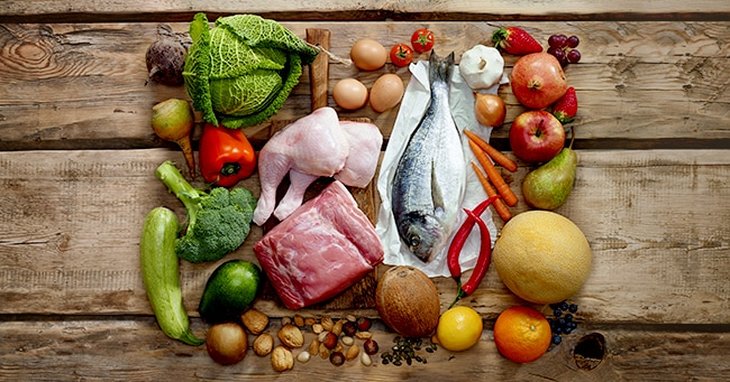Health advice is all over the place these days and there is no shortage of ill informed advice.
Many nutrition myths are so prevalent that they get mistaken as truths. With all the different opinions and information out there it can be confusing to sort out what you should be doing.
Here are 5 nutrition myths I think are important to know:
#1: Saturated Fat Makes You Fat & Causes Heart Disease
Forget about that old “eating fat makes you fat” mantra; it’s simply not true. Every cell of your body requires fat to function. Fats are needed for healthy hormone, and cholesterol balance. Eating a diet that is rich in healthy fats and proteins, and low in carbohydrates and sugar balances blood sugar, is healthy for your cardiovascular system, and teaches your body to burn fat for fuel. Your saturated fat should come from free-range animal products, and grass-fed butter. Your unsaturated fats should come from mixed nuts, avocados, coconut oil, fish oils, olives, and olive oil.
#2: Artificial Sweeteners are a Good Sugar Replacement and Help Weight Loss
Artificial sweeteners have been shown to activate the same chemical pathways that sugar does. Meaning they still affect hunger, and insulin, which will impede weight loss. In addition artificial sweeteners negatively affect brain function and reduce levels of beneficial bacteria in the gut.
#3: Soy is Healthy
Soy is one of the most commonly genetically modified foods, in addition to that it is also estrogenic and should only be consumed in small quantities.
#4: Eggs Are Bad For Your Health
Eggs are an excellent source of nutrients like choline, vitamins A, D, B and healthy protein. Choose free range eggs for added nutrition.
#5: Breakfast Is The Most Important Meal Of The Day & You Should Eat Many Small Meals A Day
Recent studies suggest that intermittent fasting can provide the same health benefits as calorie restriction, which has been shown to increase life span in animals. Intermittent fasting turns you into an efficient fat burner, boosts levels of human growth hormone, improve weight loss, and improve metabolic risk markers.
The advice to et 5-6 small meals a day comes from the principles of portion control, keeping up energy, stabilizing blood sugar, etc. In reality eating this way has not been shown to provide these benefits. We seem to need periods of fasting for optimal metabolic function. And really, this longer periods of time between meals is really more close to what our ancestors would do.
Many nutrition myths are so prevalent that they get mistaken as truths. With all the different opinions and information out there it can be confusing to sort out what you should be doing.
Here are 5 nutrition myths I think are important to know:
#1: Saturated Fat Makes You Fat & Causes Heart Disease
Forget about that old “eating fat makes you fat” mantra; it’s simply not true. Every cell of your body requires fat to function. Fats are needed for healthy hormone, and cholesterol balance. Eating a diet that is rich in healthy fats and proteins, and low in carbohydrates and sugar balances blood sugar, is healthy for your cardiovascular system, and teaches your body to burn fat for fuel. Your saturated fat should come from free-range animal products, and grass-fed butter. Your unsaturated fats should come from mixed nuts, avocados, coconut oil, fish oils, olives, and olive oil.
#2: Artificial Sweeteners are a Good Sugar Replacement and Help Weight Loss
Artificial sweeteners have been shown to activate the same chemical pathways that sugar does. Meaning they still affect hunger, and insulin, which will impede weight loss. In addition artificial sweeteners negatively affect brain function and reduce levels of beneficial bacteria in the gut.
#3: Soy is Healthy
Soy is one of the most commonly genetically modified foods, in addition to that it is also estrogenic and should only be consumed in small quantities.
#4: Eggs Are Bad For Your Health
Eggs are an excellent source of nutrients like choline, vitamins A, D, B and healthy protein. Choose free range eggs for added nutrition.
#5: Breakfast Is The Most Important Meal Of The Day & You Should Eat Many Small Meals A Day
Recent studies suggest that intermittent fasting can provide the same health benefits as calorie restriction, which has been shown to increase life span in animals. Intermittent fasting turns you into an efficient fat burner, boosts levels of human growth hormone, improve weight loss, and improve metabolic risk markers.
The advice to et 5-6 small meals a day comes from the principles of portion control, keeping up energy, stabilizing blood sugar, etc. In reality eating this way has not been shown to provide these benefits. We seem to need periods of fasting for optimal metabolic function. And really, this longer periods of time between meals is really more close to what our ancestors would do.

 RSS Feed
RSS Feed